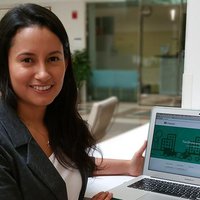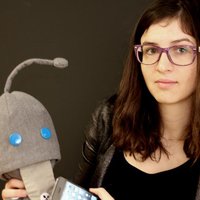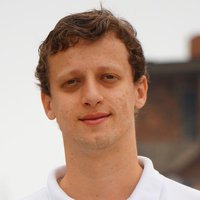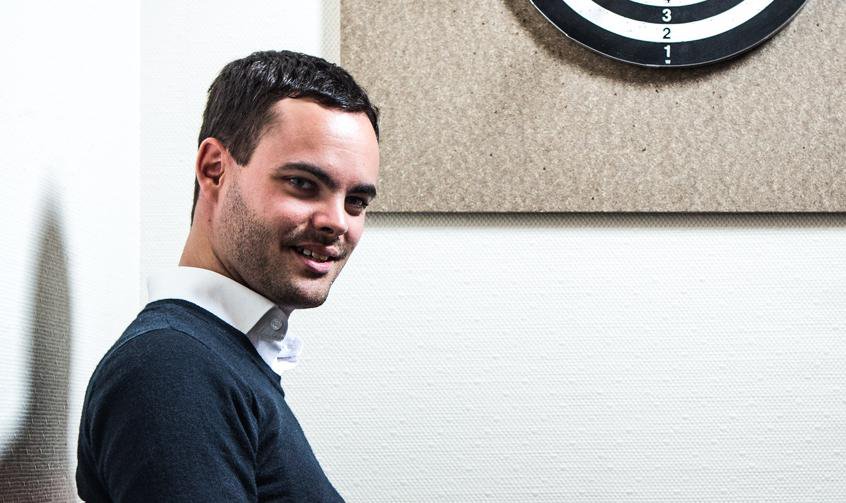"The messages sent to Mathieu Nebra from his Sub-Saharan African students speak for themselves: ""'God bless you!” they exclaim, and you can see why. In an environment where educational opportunities are scarce, this French entrepreneur has opened a virtual classroom just a click away from thousands of Internet surfers eager to gain knowledge in digital technologies.
Nebra is the co-founder of OpenClassrooms, a platform in which thousands of young people learn programming, design, animation, digital marketing strategies and many other disciplines, helping each other along the way. Furthermore, he is the creator of many of the videos, topics and exercises that make up more than a thousand online courses that his company offers for free.
His project started in 1999, when Nebra was 13. He couldn’t have imagined that the hobby he invested a few hours in after school would become a start-up with 30 employees and close to three million unique visitors per month. The OpenClassrooms embryo was called Site du Zero and emerged as a response to what angered Nebra most in the world: to see someone leave their studies because they felt unable to learn. The young businessman wanted to create a website that would work ""as that friend who helps you move forward in a course,"" he recalls.
It is precisely the teaching method the platform uses, its review and student support system, what differentiates OpenClassrooms from other massive open online courses (MOOC). Nebra built an algorithm that automatically assigns users exercises and other classmate’s homework that they must evaluate and comment on as part of their own work. Each reviewer, in turn, gets marked by three other students. ""Although they are beginners, having to correct others forces them to organize their knowledge and is a great way to learn,"" Nebra explains.
But how has he managed to convince users of the importance of these revisions? Nebra explains: ""We ask them nicely, we say: 'I learned by practicing, so do the same and everything will be fine.'"" Surprisingly, it works. When they started using the algorithm a year ago they observed that they could correct up to 6,000 exercises in 72 hours. Today between 30% and 40% of active site subscribers carry out these classmate evaluations.
One of the strengths of the platform is that it teaches courses and skills for a professional environment. ""In tomorrow’s résumés people’s skills will quickly become obsolete"" Nebra explains, adding: ""We want to be the platform where they can show what they know, what they can teach and the impact they have on the community: that will be their curriculum"". To do this, the contents are divided into small parts accompanied by checklists and a very much importance is given to practical tasks and project creation. These strategies encourage students to remain interested in the courses, which usually don’t exceed four weeks.
In addition to the ""learning journey"" marked by the course, the platform offers the possibility (for 300 Euros a month) to add videoconference tutoring with a mentor once or twice a week. So far there are ten mentors asisting 25 people, and Nebra strives to increase that number in order to respond to the high demand for individualized training.Although most courses are in French, Nebra wants to add languages, expand into Europe (together with the École Polytechnique he created the Decode the Entrepreneur's DNA course in English) and grow in the Francophone African market. ""There is a very active community there. They don’t have teachers, they take what they can get online and consider it a blessing,"" said Nebra.
OpenClassrooms is negotiating with the French National Register of Professional Certifications so their students can obtain an official diploma recognized by the state agency after completing their courses. The first of them, Nebra explains, will be Front-end Programmer, that will become in the coming months the first MOOC to offer an official diploma in France. Meanwhile, they are still expanding their offer with the help of the community. They receive about 20 content proposals per day of which over 70% are rejected to maintain a high level of educational quality.
According to Yoann Jaffré, responsible of the Open Innovation Lab at L'Atelier BNP Paribas and member of the jury for the MIT Technology Review Innovators Under 35 France, Nebra, ""born entrepreneur"", stands out for his innovation, humility and focus on his user community, which has allowed him to ""build useful services in the tough field of educational technology and MOOC""."




